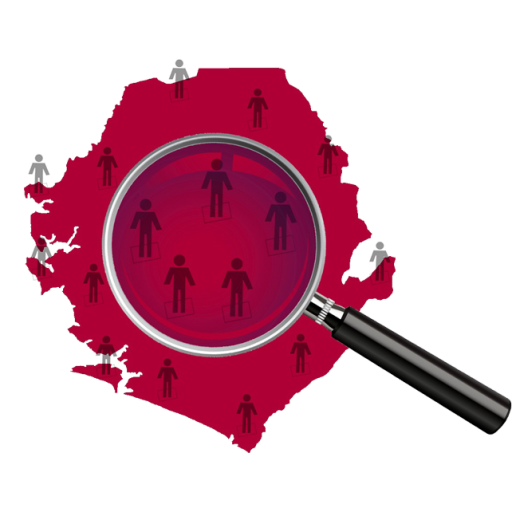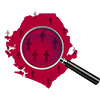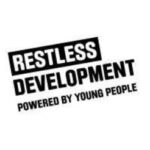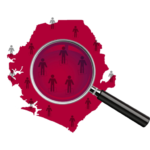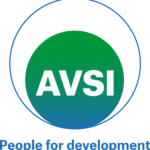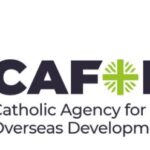Job Overview
-
Date PostedFebruary 15, 2024
-
Location
-
Expiration dateFebruary 27, 2024
-
OrganizationRestless Development
-
Required LanguagesEnglish
Job Description
Terms of Reference for an Endline evaluation of the “Improving Financial Inclusion for Women Living in Freetown’s Informal Settlements” (WLIIS) Project.
- Introduction
Restless Development is a non-profit global agency that supports young leaders’ collective power to create a better world. More than ever the world needs young people’s power and leadership to solve its greatest challenges. We were formed in 1985 and have been working with young people since then. Every year, we train, mentor, nurture, and connect thousands of young people to use their youth power and lead change. We are independently registered and governed in nine countries (India, Nepal, Sierra Leone, Tanzania, Uganda, the UK, the USA, Zambia, and Zimbabwe) bound together by our vision of youth power. We are a global team of 214 people based in 13 countries, and we host a growing youth collective of youth organizations in 185 countries. We are committed to creating an agency that paves the way for youth-led change and walks the talk on power shifting. Restless Development aims to ensure maximum impact on a wide range of issues globally including responding to emergencies, health crises, and digital rights.
Our impact-priority areas are Education and Livelihoods, Gender and Sexual Rights, Voice and Democracy, and Climate Justice. Since 2005 we have been responding to some of the most urgent issues affecting young people and their communities in Sierra Leone. We have worked closely with the Ministry of Youth Affairs, Ministry of Basic & Senior Secondary Education, Ministry of Health and Sanitation, and Ministry of Gender and Children’s Affairs to develop and deliver transformational youth-led programs addressing youth leadership in education reform, civic participation, facilitating community linkages, training and supporting youth structures, creating demand and awareness of a range of sexual and reproductive health services, livelihoods, and employment activities, strengthening community-led accountability in service delivery, and youth-led research. We have a physical presence and 32 staff members working in Freetown, Makeni, and Koinadugu.
- Project Background
In partnership with the Centre for Dialogue on Human Settlement and Poverty Alleviation (CODOHSAPA) and the Federation for Rural and Urban Poor (FEDURP), we are implementing the “Improving Financial Inclusion for Women Living in Informal Settlements” (WLIIS) project with funding support from Jersey Overseas Aid (JOA). The project began in June 2021 and will run until March 2024.
The overarching objective of the project is to create an enabling environment for women living in Freetown’s informal settlements and their existing enterprises to access appropriate, affordable, and timely financial products and services, resulting in increased financial sustainability and independence. There are two pillars key to achieving this:
The women have been trained in life and business skills, and supported with loans to start small and medium-sized enterprises (SMEs). The project builds on previous gains to address women’s lack of financial inclusion at the community and institutional levels. Unlocking access to financial services means women living in informal settlements can take a step towards entering the formal economy and registering their SMEs. They will save money independently, keep income secure, access loans and credit beyond NGOs and charities, and have a more sustainable income.
Project Theory of Change (ToC)
The overall objective of the project is to create an enabling environment for women living in Freetown’s informal settlements (WLIIS) and their existing enterprises to access appropriate, affordable, and timely financial products and services, resulting in increased financial sustainability and independence
To contribute to the overall outcome of the project, the following hypotheses are considered:
If We improve WLIIS’ knowledge about financial options and services available, ensure they understand the importance of savings, and that they practice it to ensure a more sustainable income
And We cascade knowledge that will be held in communities and passed on to savings groups and wider community members, including WLIIS
And We improve WLIIS ability, confidence, life skills, and motivation to utilise financial services
While
- Ensuring Financial Service Providers have gender-sensitive and inclusive policies, practices, and products
Including
- Inclusive access to mobile money and banking services
- Support from policymakers
Then
- Women living in informal settlements (WLIIS) will be able to access appropriate, affordable, and timely financial products and services.
- WLIIS will have increased financial resilience and financial independence (including the ability to make choices about finances, and resilience to financial shocks)
Leading To
- An enabling environment for WLIIS to start, sustain, and expand businesses/enterprises
- WLIIS empowered to be more independent and to make positive decisions about their lives and households
Project Objectives
The goal of the project is to improve financial inclusion for women living in Freetown informal settlements. Two major objectives will help us achieve this goal.
- Community Change: 5,500 women living in informal settlements have the skills, knowledge, awareness, literacy, and motivation to utilise financial services.
- Systemic Change: Financial service providers have gender-sensitive policies, practices, and products that are accessible to WLIIS. Action research will influence systemic change. This will likely include:
- Banks creating/changing/reviewing practices and policies to ensure WLIIS are better able to open bank accounts (e.g. changes to accepted documentation).
- Mobile money providers establish mobile money kiosks in 37 informal settlements.
- Duty-bearers from relevant ministries take action to review existing policies that limit access to financial services, including relaxing restrictions on obtaining ID cards, including the number of supporting documents, providing financial assistance, or removing fees for Sierra Leone’s most marginalised.
- Purpose of the Evaluation
The purpose of this end-line evaluation is to assess the effectiveness, efficiency, impact, and sustainability of the Improving Financial Inclusion for Women Living in Informal Settlement project; to identify any problems or challenges that the project encountered; issue recommendations; and identify lessons learned on design, implementation, and management. The evaluation’s purpose is thus to provide findings and conclusions to meet accountability requirements and recommendations and lessons learned to contribute to the project’s improvement and broader organizational learning. The evaluation should not only assess how well the project has performed but also seek to answer the ‘why ‘question by identifying factors contributing to (or inhibiting) the successful delivery of the results. In addition to assessing the outcomes achieved, the evaluation focuses on assessing the impacts of the project and its delivery. The evaluation should compare with baseline conditions, assess change include recommendations, and identify key learnings for future projects. The end-line evaluation will include change story (s) to determine the general impact and benefit of the project to the women living in informal settlements in Freetown.
Scope of the evaluation
The end-line evaluation will cover the entire project duration until the evaluation’s start and consider ongoing activities. Although the scope of the evaluation does not include the inception phase of the project (June- August 2021), the evaluator should consider that phase as contextual background in framing the evaluation’s findings and conclusions.
The evaluation will look at the 37 project operational communities in Western Area Urban and Rural districts.
- Evaluation criteria
The end-line evaluation is intended to analyse the status of project implementation and initial results regarding the achievement of objectives (Logframe matrix). Relevance and strategic fit for the intervention, validity of intervention design, Intervention progress and effectiveness, the efficiency of resource usage, Impact orientation, and sustainability of the intervention, Findings are to be used for future interventions. Concrete recommendations for action can support the identification of necessary adjustments to increase the project’s success. The consultant will evaluate the following;
Effectiveness: The consultant (s) will collect evidence of how effective the project has been in delivering results and in strengthening evidence-based financial inclusion for women living in the 37 informal settlements of the project.
Efficiency: To what extent has the project cost-effectively delivered its results?
Impact: What are the cumulative and/or long-term effects expected from the project, including contribution towards the intended impact, positive or negative impacts, or intended or unintended changes?
Sustainability: To what extent are the project’s results likely to be sustained in the long term
- The evaluation aims to generate recommendations for the second project phase to respond to the general assessment parameters.
- Furthermore, the strengths and weaknesses of the project should be elaborated, best practice examples derived, and lessons learned formulated in detail so that the gained knowledge can be used for further development of the project.
- The Endline evaluation is conducted by an external consultant with support from Restless Development Sierra Leone where necessary. The role of the consultant (s) is to conduct the evaluation, development of appropriate tools for data collection, monitor the field activities, and conduct data analysis, reporting with an impact brief.
- Objectives of the Evaluation
The following objectives contribute to the purpose of the final evaluation of the project:
- Compare knowledge of relevant stakeholders regarding financial inclusion for women living in informal settlements from baseline to end-line.
- Understand the current trend of financial literacy, inclusion, and access to financial services and products by young women living in informal settlements.
- Establish result values for all key project indicators to effectively assess project completion against the project baseline.
- Assess the impact of mobile money services and formal banking systems on women living in informal settlements.
- Provide a comparison between baseline and end-line results for all key indicators and justify the positive or negative change.
- Outline unintentional outcomes, either positive or negative, that transpired because of the project.
Evaluation Approach and Methods
The evaluation is to be undertaken following the Restless Development Monitoring and Evaluation Result Framework, norms, and standards for evaluation. The evaluation will be undertaken by a consultant/s (the “evaluator”) under the supervision of the Monitoring Evaluation and Learning Unit (MEL).
- To maximize utilization, the evaluation shall follow a participatory approach and engage a range of project stakeholders in the process, including the project partners, the participants, and other stakeholders. Data collection should be triangulated to the extent possible to ensure validity and reliability of findings and draw on the following methods: comprehensive desk review, including a stakeholder analysis; surveys; review of the log frame (reconstructed), baseline data and reconstruction of the theory of change the evaluation will also include key informant interviews; focus group discussions; and field visits.
- The evaluator should engage in quantitative and qualitative analysis in responding to the principal evaluation questions and present the findings qualitatively or quantitatively as most appropriate.
Deliverables,
The following outputs are expected to be achieved:
- A well-written inception report in English with a maximum of 20 to 25 pages describing the evaluation plan (timeline & evaluation matrix), evaluation methods (type, justification, number disaggregation, field data collection tools and technique including sampling methods and size), and data analysis methods and procedures including appropriate test statistics. It should be built on ethical considerations and consent forms for primary data collection in the inception report.
- An impact brief from the evaluation conducted (two-pager brief of major successes of the project)
- Two major case studies from project beneficiaries or stakeholders.
- Minutes of key meetings including interviews with evaluation respondents
- Raw data collected from the evaluation.
- Comprehensive analytical draft report based on the evaluation findings including recommendations and areas for follow-up.
- The final report includes an introduction, a summary of findings, methodology, and findings on the quantified and coded qualitative data as analysed for the various responses, conclusions, and recommendations.
PAYMENT SCHEDULE:
The payment for this consultancy will be done in three tranches:
| Phases | % | Precondition |
| 1st Tranche | 50% | After award of the contract, upon submission and approval of the inception report |
| 2nd Tranche | 30% | After submission of the Draft Report |
| 3rd Tranche (Final payment) | 20% | After approval of Final Report |
Evaluation Report Criteria and Timelines
Indicative timeframe: February-March 2024
TIMELINE AND SCOPE
The evaluation will be conducted within one month (30 Days) upon signing the contract between the firm/individual and Restless Development and the scope as given in the Terms of Reference or as agreed during the contract signing with the project team.
| ACTIVITY | Timeline
(Days) |
Responsible person |
| Meeting with RDSL | 1 | Consultant/Restless |
| Submit inception Report and review of plan | 3 | Consultant (s) |
| Provide feedback on inception report | 1 | Restless |
| Submit revised Inception Report (Consultant) | 2 | Consultant (s) |
| Develop end-line evaluation tools – hard and digital copies | 2 | Consultant (s) |
| Review the end-line evaluation tools – hard and digital copies | 2 | Restless |
| Conduct Endline evaluation training for enumerators | 2 | Consultant (s) |
| Conduct end-line evaluation | 7 | Consultant (s) |
| Clean and analyse end-line data | 2 | Consultant (s) |
| Submit and present an end-line evaluation draft report to RDSL Senior Leadership team | 6 | Consultant (s) |
| Provide feedback to the end-line evaluation draft report | 1 | Restless |
| Submit end-line evaluation final report to RDSL | 1 | Consultant (s) |
Evaluation Brief Presentation
The consultant (s) would be expected to present evaluation findings with partners, project team members, beneficiaries, and stakeholders. This process will facilitate the community feedback mechanism on evaluations ensuring community involvement and participation in the entire evaluation process.
Application Process
Applicants should submit the following:
Technical proposal: A proposal of a maximum of 5 pages which includes the profile/s of the consultant (s), a brief explanation about the consultant (s) understanding of the TOR, proposed methodology, and timelines. CVs of lead consultants.
Financial Proposal: The financial proposal should provide cost estimates for services rendered including a detailed breakdown of such costs (all related costs must be included in the financial proposal)
Interested and qualified candidates should send their application to https://restlessdevelopment.bamboohr.com/careers/104?source=aWQ9MTQ%3D
by 27th February 2024 with copies of the following attached. with an email marked with the title of “Consultancy for Endline Evaluation of the Improving Financial Inclusion for Women Living in Freetown’s Informal Settlements” (WLIIS) Project.
Contractual arrangements
Restless Development Sierra Leone will contract the evaluator who will report directly to the Monitoring Evaluation and Learning Manager (MEL). The evaluator will collaborate closely with the project team to support the data collection. The evaluator should consult with the MEL manager on any procedural or methodological matter requiring attention. The evaluator is responsible for planning any meetings, organizing online surveys, and undertaking administrative arrangements for any internal movements that may be required.
Evaluator Ethics
The evaluator selected should not have participated in the project’s design or implementation or have a conflict of interest with project activities. The selected consultant shall sign and return a copy of Restless Development’s Safeguarding Code of Conduct before initiating the assignment and comply with all principles outlined in the code.
Safeguarding
Restless Development considers the welfare and protection of children, young people, and vulnerable adults to be an organisational imperative with primacy over the success of programmes or strategic objectives. We recognise that safeguarding is everyone’s responsibility and we expect all of our staff, volunteers, and partners to ensure we protect the communities in which we operate from harm and abide by our Safeguarding Policy.
We give zero tolerance to safeguarding and expect our partners and people we work with to abide by the same.
Professional requirements
The consultant is expected to demonstrate:
- Education/Certification: Post-Grad qualification in Statistics, Social Work, or Sociology. A PhD Postgraduate degree is an added advantage.
- Solid understanding of the Financial Inclusion strategy for women in Sierra Leone with a specific focus on Western Area Rural and Urban communities.
- Knowledge, experience, and relevant local research assets and networks in the target locations.
- Knowledge and experience in end-line survey design, developing reliable data-gathering tools, and applying statistical models to analyze data from a variety of sources.
- Statistics qualification/training and prior experience in statistics analysis software – for example SPSS, Stata, and Excel
- Demonstrable experience in developing social research methodologies, survey reports, critical analysis, and social science assessment.
- Demonstrable experience with large-scale audience surveys.
- Evidence of a well-written report of an evaluation conducted.
- Willingness and ability to collaborate in researching and producing relevant documents in close collaboration with RDSL.
- Fluency in English and Krio plus any other local language commonly spoken among the locals.
- The consultant should have in-house skills/capacity to provide the expertise needed to carry out the assignment successfully.
- The consultant should have the ability to include more women in the team to collect data and validate data collected.
Women are encouraged to apply.
Application process: The closing date for submission of complete applications is 26th February 2024. Only applicants with complete documents will be considered and only shortlisted applicants will be contacted.
Application link: https://restlessdevelopment.bamboohr.com/careers/104?source=aWQ9MTQ%3D
